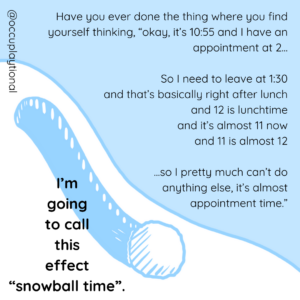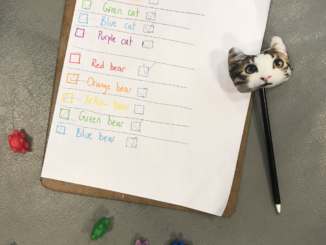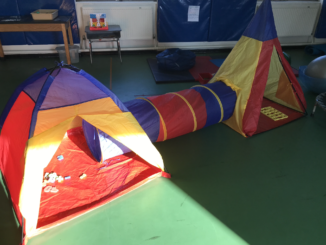Have you ever done the thing where you find yourself thinking, “okay, it’s 10:55 and I have an appointment at 2. So i need to leave at 1:30 and that’s basically right after lunch and 12 is lunchtime and it’s almost 11 now and 11 is almost 12 so I pretty much can’t do anything else, it’s almost appointment time.”
When in actuality, mathematically, you have a solid 3 hours (and five minutes).
That’s kind of like what adults (parents, caregivers, teachers, therapists) do with kids a lot of the time. Both individually, and societally. I’m gonna call this effect “snowball time”. (Maybe it really has a name but that’s what I’m calling it, because you’re thinking five minutes ahead and it somehow snowballs into three hours.)
Individually, adults start thinking in “snowball time” especially when they’re worried or anxious about some trait their kid has. Usually the trait is an appropriate childish developmental phase. The adult is imagining how this phase looks when it is a personality trait carried into adulthood, and usually when adults are still emulating childish traits it seems immature, because it IS immature, because children are by definition not matured yet.
So if a child goes through a normal, developmental phase of enthusiastically telling stories that are untrue in an attempt to be impressive or interesting, the adult may freak out because almost all of us know at least one adult who absolutely cannot be trusted because they lie all the time.
Or if a child goes through a normal, developmental phase of caring more about possessions and owning things and treasuring them and not throwing them away, the adult may freak out because almost all of us know somebody who is super materialistic or maybe somebody who is a hoarder, and we might worry that this means the child will grow up to be the same way.
Then because of this fear, adults will start treating the children according to snowball time. You need to be able to do this when you’re 40, so you need to be able to do it when you’re 18, and that’s only a mere decade from 8, and you’re about to be 7 on your next birthday, so we better harp on this 6-year-old like they’re a full grown adult (especially if the full grown adult we’re afraid of them emulating is our own parent or parent-in-law or someone else who we dislike this behavior in and fear our child will inherit).
Schools and other systems do this too, and then a generation passes by and it causes a slide in developmental expectations to earlier and earlier. You need to be able to write an essay when you’re 10, so you probably need to know how to write five paragraphs when you’re 8, so you need to write three paragraphs when you’re 7 and one when you’re 6 and that means you need to write full sentences when you’re 5. Nevermind that some 5 year olds literally haven’t learned all the pre-writing shapes that brains need to know before they can do letters of the alphabet! Nevermind that little cartilaginous hands aren’t ready to hold an adult-sized pencil and write for long periods of time because their bone structure hasn’t even developed yet.
All of that is snowball time. And a couple of kids will be able to keep up with it, just like I could theoretically drive to the doctor’s office at 10:57 and sit in the parking lot for three hours.
But that doesn’t mean that we all should. We’ll be skipping most of the journey. We’ll be operating out of fear. We’ll be focusing all our resources on one thing instead of following the child’s lead where they go. We’ll be missing out on a lot of things along the way.

[Image description:
A drawn, cartoony image of a snowball rolling down a hill, with words over it that read, “Have you ever done the thing where you find yourself thinking, “okay, it’s 10:55 and I have an appointment at 2. So i need to leave at 1:30 and that’s basically right after lunch and 12 is lunchtime and it’s almost 11 now and 11 is almost 12 so I pretty much can’t do anything else, it’s almost appointment time.” I’m going to call this effect ‘snowball time’.” End description.]



